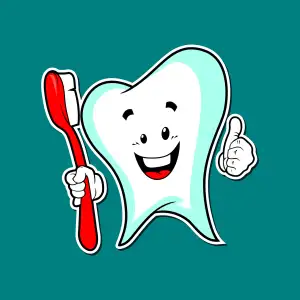Unveiling the Nutritional Secrets: Are Pretzels Healthy? A Health-conscious Analysis

- Calories in pretzels: Understanding the energy content
- Fat content in pretzels: The role of fats in a healthy diet
- Sodium in pretzels: Balancing the salt intake
- Fiber in pretzels: Promoting digestive health
- Protein in pretzels: Supporting muscle growth and repair
- Micronutrients in pretzels: Exploring vitamins and minerals
- Health considerations: Are pretzels a healthy snack option?
Pretzels are a popular snack enjoyed by many, but have you ever wondered about their nutritional value? In this article, we will delve into the secrets of pretzels and explore their health benefits. From their calorie content to the micronutrients they provide, understanding the nutritional value of pretzels is key to making informed choices about our diet. So let's uncover the truth behind these crunchy treats and discover if they truly deserve a place in a healthy eating plan.
Calories in pretzels: Understanding the energy content
When it comes to maintaining a healthy diet, understanding the calorie content of our favorite snacks is essential. Pretzels, with their crunchy texture and satisfying taste, are a popular choice for many. But how do they fare in terms of calories?
On average, a single serving of pretzels contains around 110-150 calories. This may vary depending on the size and type of pretzel you choose. While this calorie count may seem relatively low compared to other snacks, it's important to consider portion sizes.
It's easy to mindlessly munch on pretzels without realizing how quickly those calories can add up. To prevent overindulging, it's recommended to measure out a proper serving size and enjoy them mindfully.
Remember that while calories are an important consideration for weight management, they are not the sole indicator of a food's nutritional value. Let's delve deeper into the various aspects of pretzels' nutrition to gain a more comprehensive understanding of their health benefits or drawbacks.
Fat content in pretzels: The role of fats in a healthy diet
Fat content in pretzels plays a crucial role in maintaining a healthy diet. While pretzels are low in fat compared to other snacks, it is important to be mindful of the type of fats present. Pretzels typically contain minimal amounts of saturated fats, which are known to increase cholesterol levels and pose health risks. However, they may contain small amounts of healthier unsaturated fats, such as monounsaturated and polyunsaturated fats. These fats are beneficial for heart health and can help lower bad cholesterol levels when consumed in moderation. It is essential to consider the overall fat intake from all sources when incorporating pretzels into a balanced diet.
Sodium in pretzels: Balancing the salt intake
Sodium, a key component of salt, is an essential nutrient needed by the body in small amounts. However, excessive sodium intake can lead to health problems like high blood pressure. Pretzels are known for their salty taste, which can make them a concern for individuals watching their sodium intake. It's important to be mindful of the amount of sodium consumed from pretzels and balance it with other low-sodium foods in the diet. Opting for low-sodium or unsalted pretzels can be a healthier choice for those who need to limit their salt intake.
Fiber in pretzels: Promoting digestive health
Fiber is an essential nutrient for maintaining a healthy digestive system, and pretzels can be a good source of this important component. While they may not be as high in fiber as other whole grain snacks, pretzels still provide a decent amount. Fiber helps to regulate bowel movements, prevent constipation, and promote overall gut health. Including pretzels in your diet can contribute to a well-functioning digestive system and keep you feeling satisfied throughout the day.
Protein in pretzels: Supporting muscle growth and repair
Protein is an essential nutrient that plays a crucial role in supporting muscle growth and repair. While pretzels are not typically known for being high in protein, they do contain a small amount. A 1-ounce serving of pretzels provides around 2 grams of protein. Although this may seem insignificant compared to other protein-rich foods, every little bit counts. Including pretzels as part of a balanced diet can contribute to your overall protein intake and help support muscle health. However, it's important to remember that pretzels should not be relied upon as the sole source of protein in your diet.
Micronutrients in pretzels: Exploring vitamins and minerals
Micronutrients play a crucial role in maintaining overall health and well-being. While pretzels may not be a significant source of vitamins and minerals, they do contain some essential micronutrients. Pretzels typically provide small amounts of iron, calcium, and B vitamins such as niacin and thiamin. These micronutrients are important for various bodily functions, including energy production, bone health, and red blood cell formation. Although pretzels may not be a primary source of vitamins and minerals, they can contribute to your overall nutrient intake when consumed as part of a balanced diet.
Health considerations: Are pretzels a healthy snack option?
While pretzels can be a tasty and convenient snack, it is important to consider their health implications. One key factor to note is that pretzels are low in fat, making them a healthier alternative to many other snack options. However, it is essential to be mindful of portion sizes as excessive consumption can lead to weight gain.
Additionally, the high sodium content in pretzels should be taken into account. Excessive salt intake can contribute to hypertension and other health issues. Therefore, individuals with high blood pressure or those watching their sodium intake should consume pretzels in moderation.
On the positive side, pretzels are a good source of fiber which aids in digestion and promotes overall gut health. The fiber content also helps keep you feeling fuller for longer periods of time, reducing the likelihood of overeating.
Furthermore, pretzels contain a modest amount of protein which is important for muscle growth and repair. While they may not be as protein-rich as other snacks like nuts or yogurt, incorporating them into a balanced diet can still contribute to meeting daily protein requirements.
Lastly, although pretzels do not offer significant amounts of vitamins and minerals, they do provide small amounts of iron and B vitamins such as thiamin and niacin.
In conclusion, while pretzels can be enjoyed as part of a balanced diet due to their low-fat content and moderate levels of fiber and protein, it is crucial to consume them in moderation considering their high sodium content. As with any food choice, it is important to make informed decisions based on individual dietary needs and goals.
In conclusion, pretzels can be a part of a healthy and balanced diet when consumed in moderation. While they are low in fat and calories, it's important to be mindful of portion sizes and choose whole grain options for added fiber. Additionally, being aware of the sodium content is crucial for those watching their salt intake. Pairing pretzels with nutritious dips or toppings can also enhance their nutritional value. Ultimately, making informed choices about pretzels as a snack option can contribute to a well-rounded approach to nutrition and overall health.
Published: 13. 12. 2023
Category: Health



